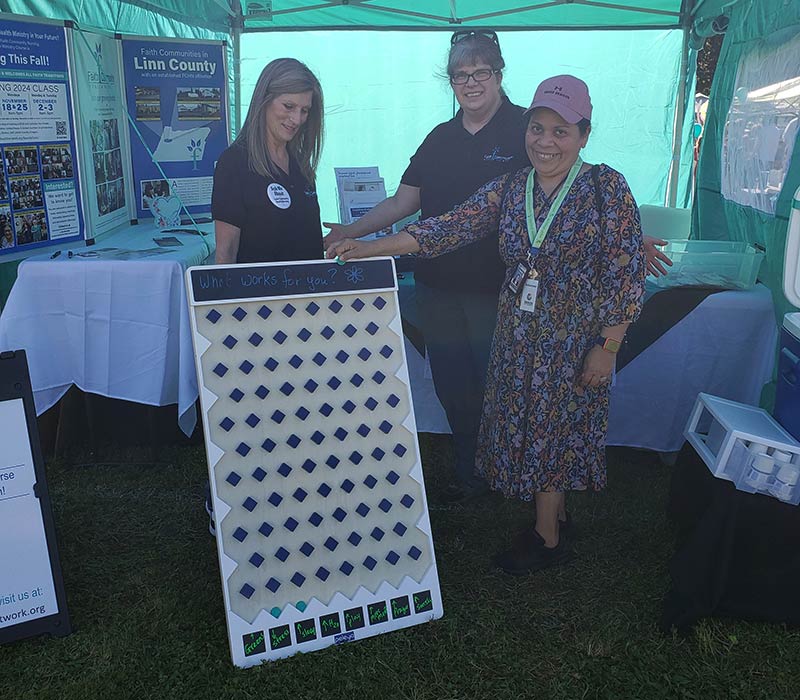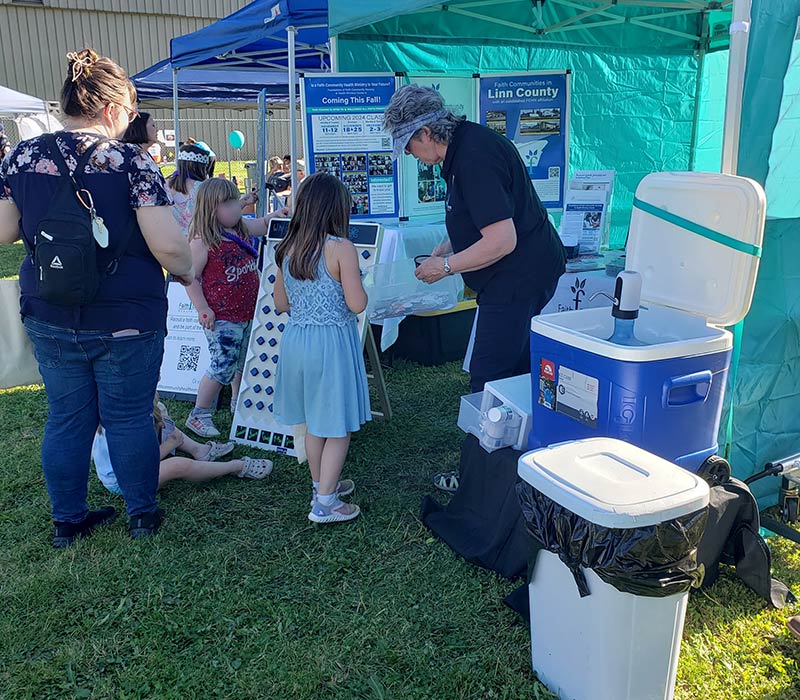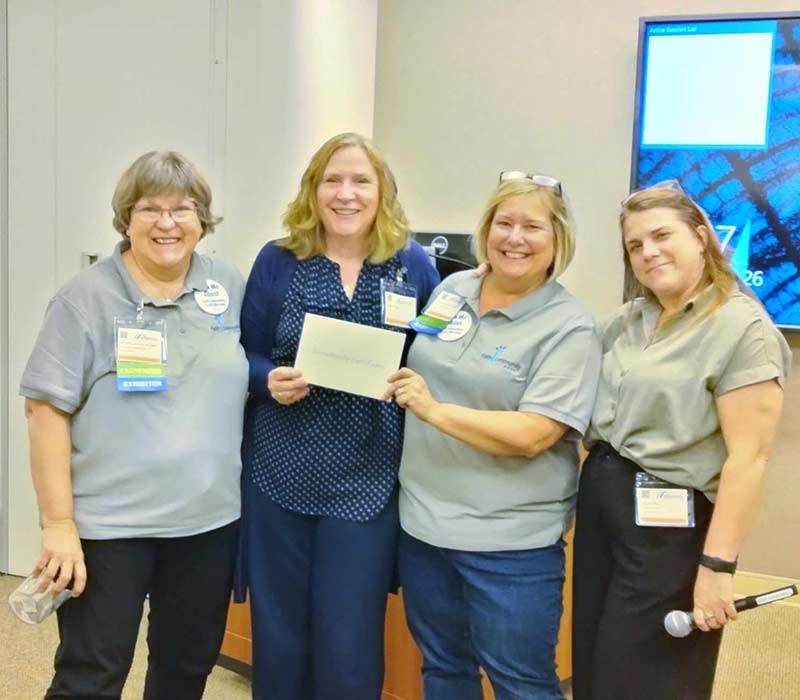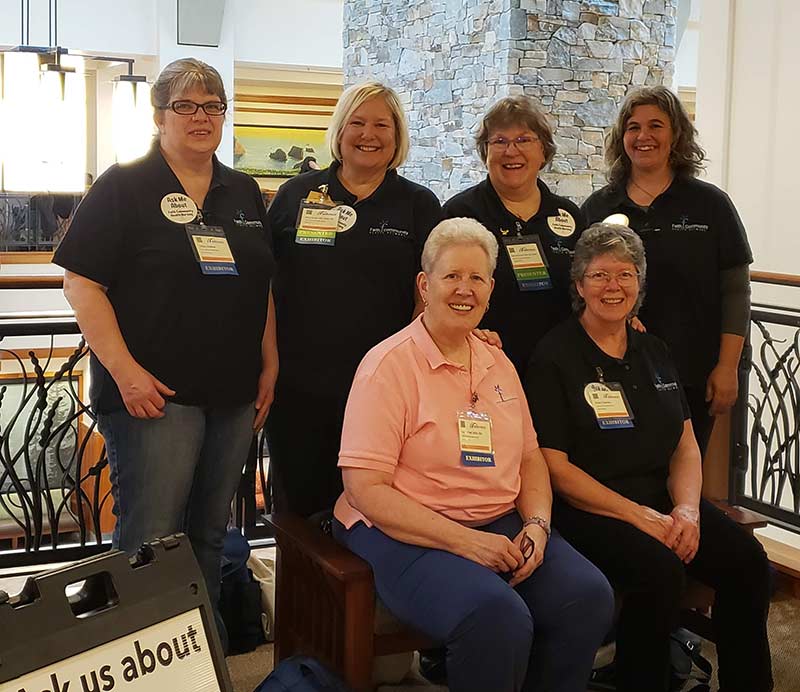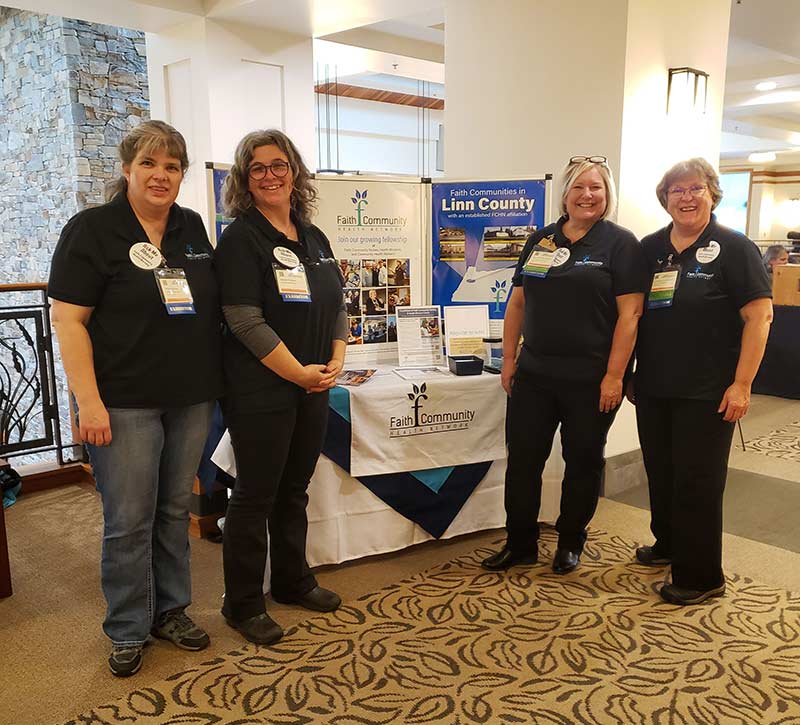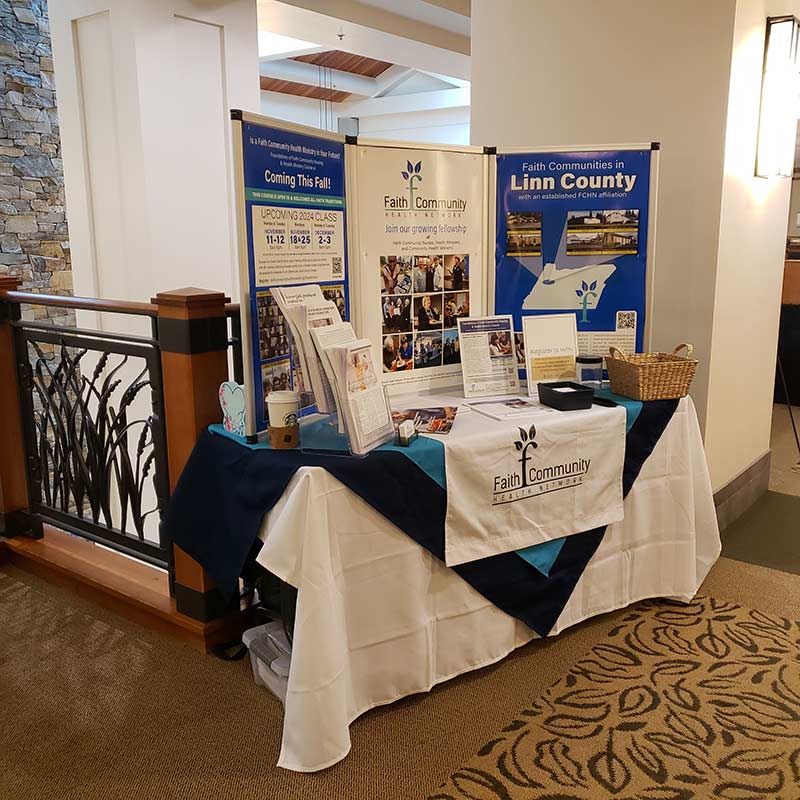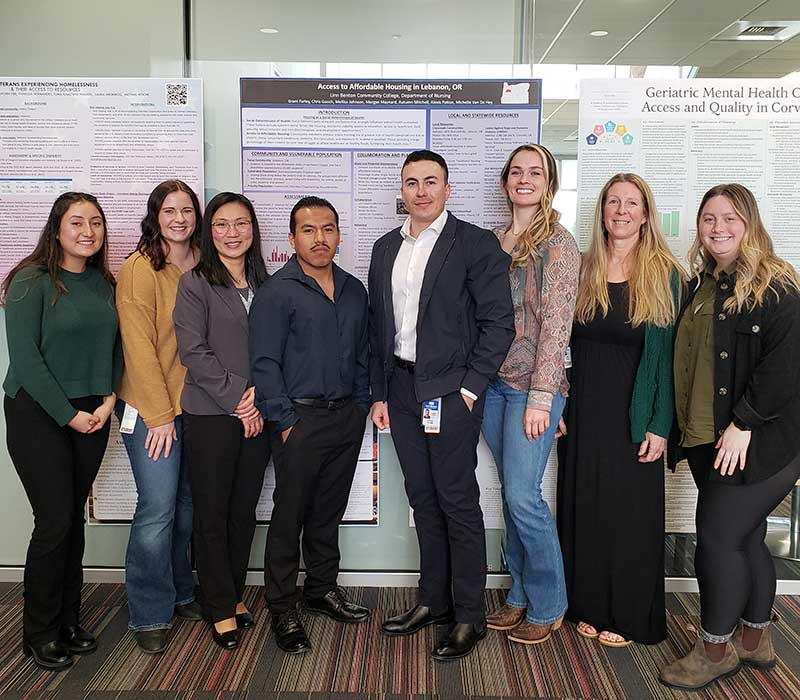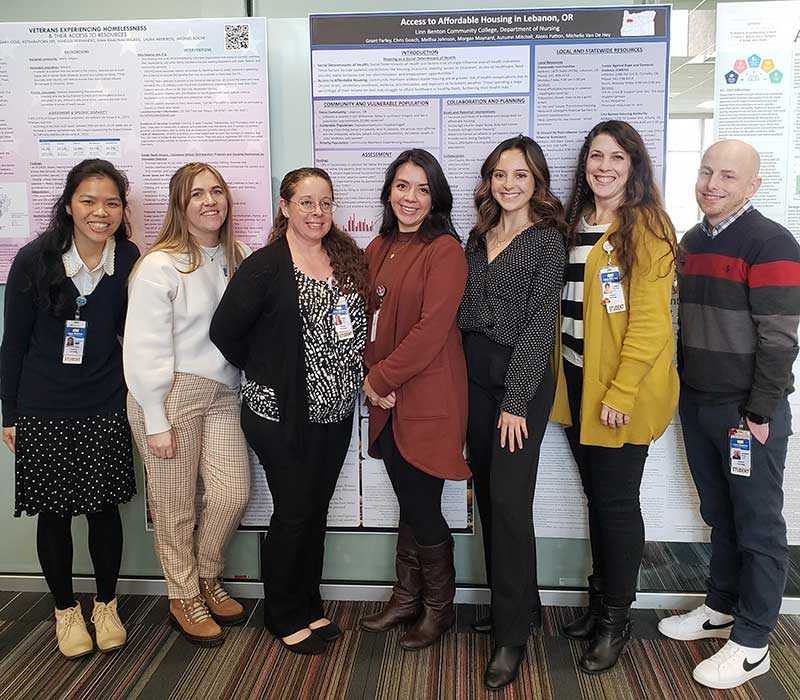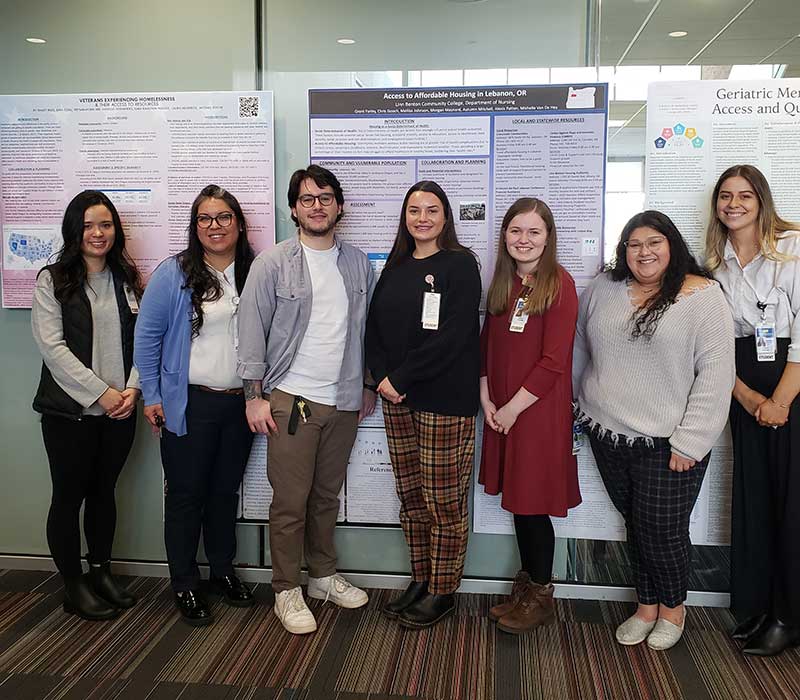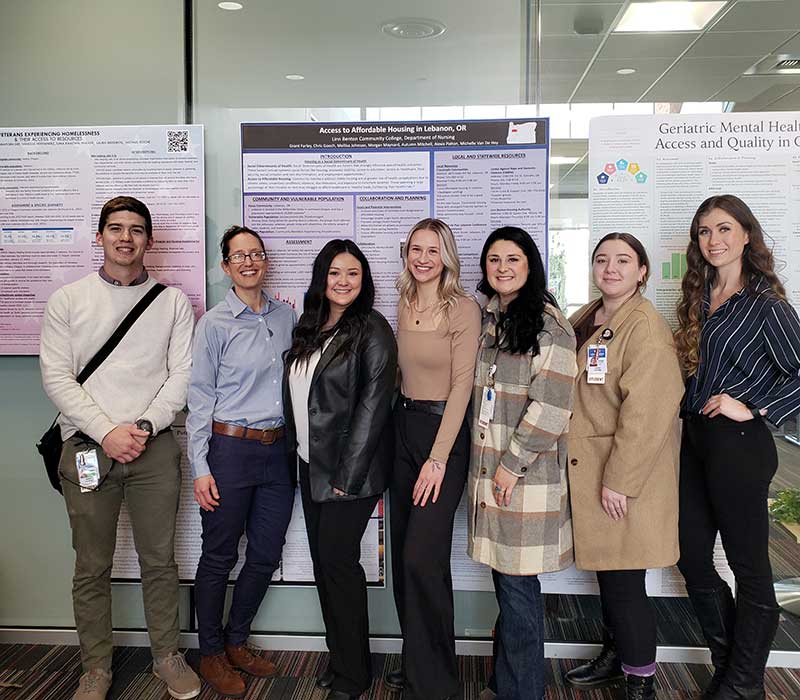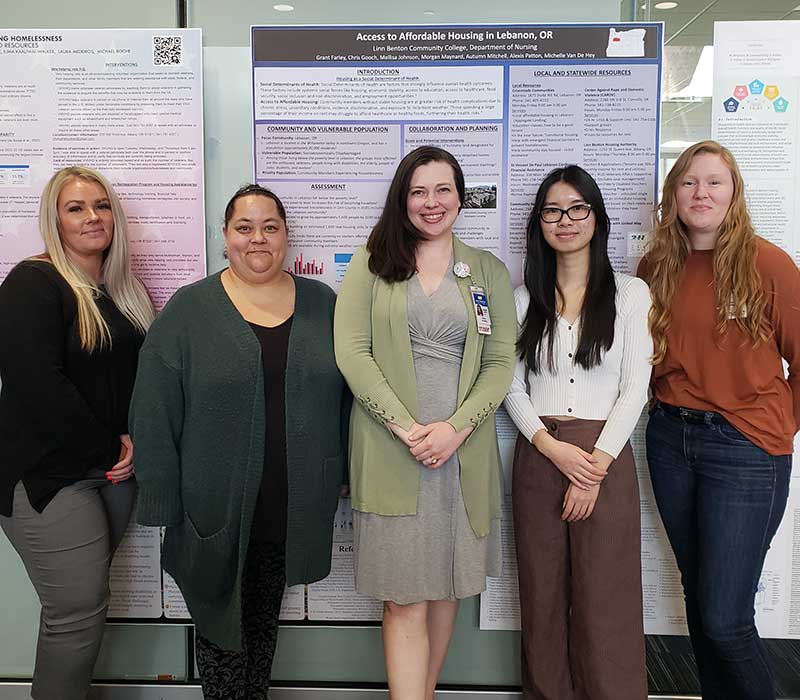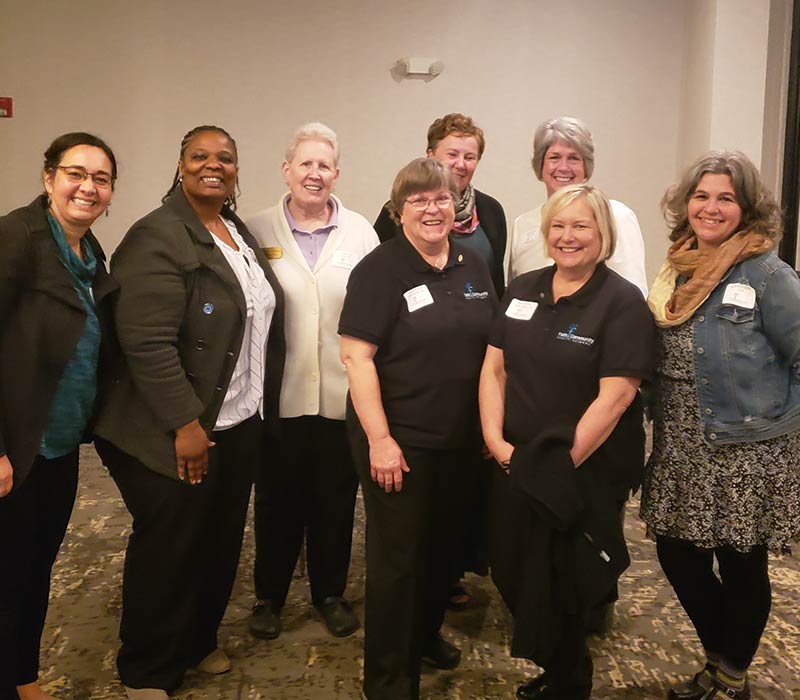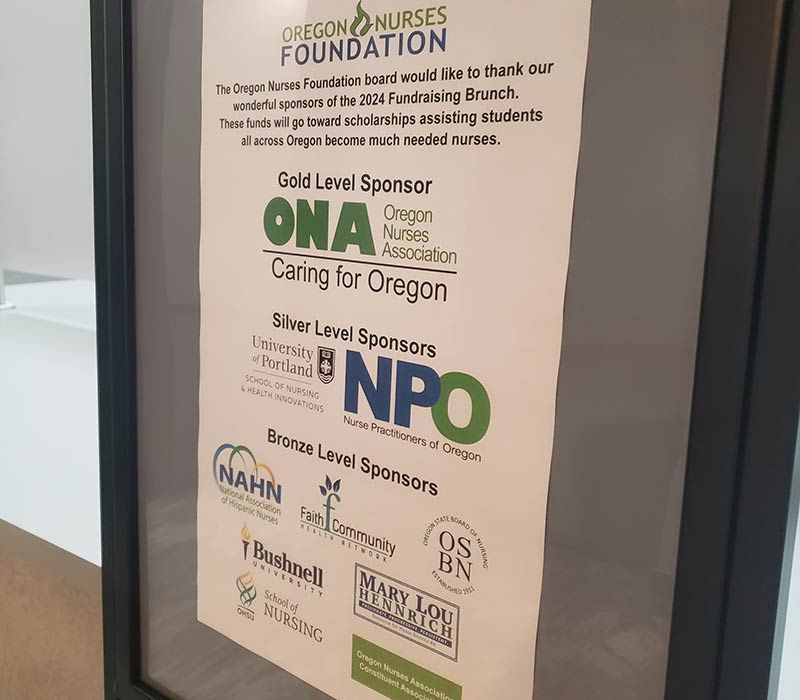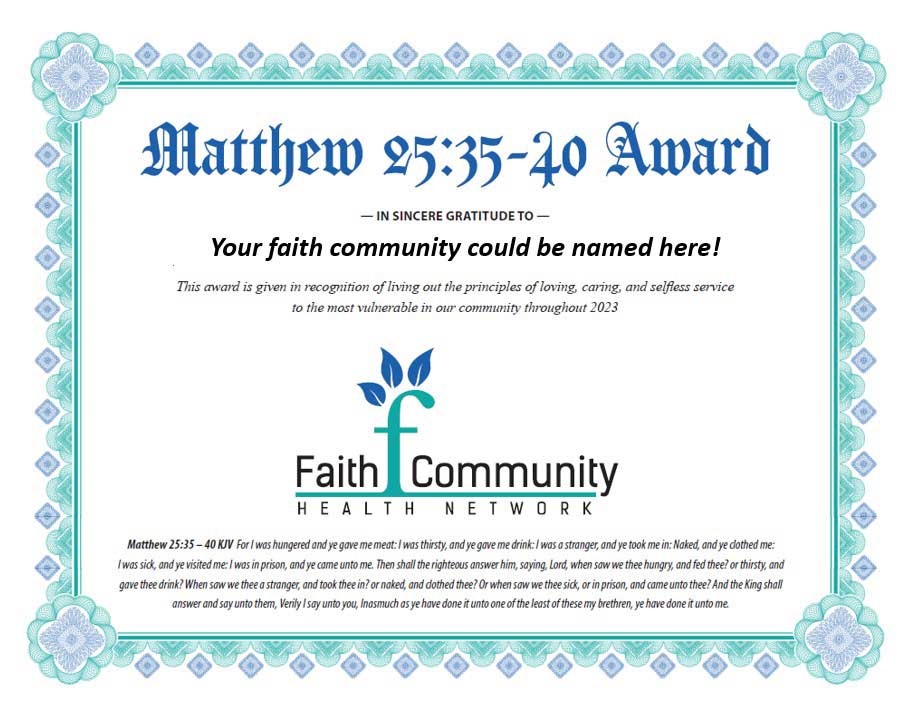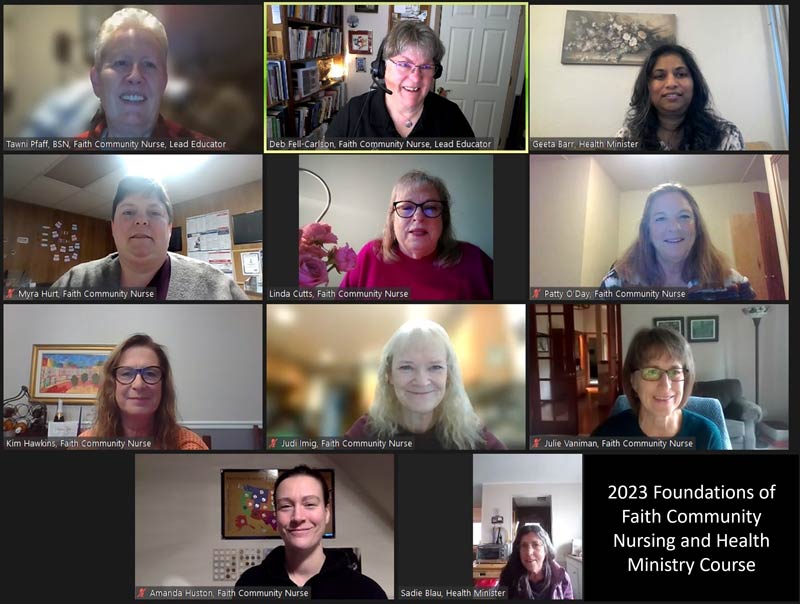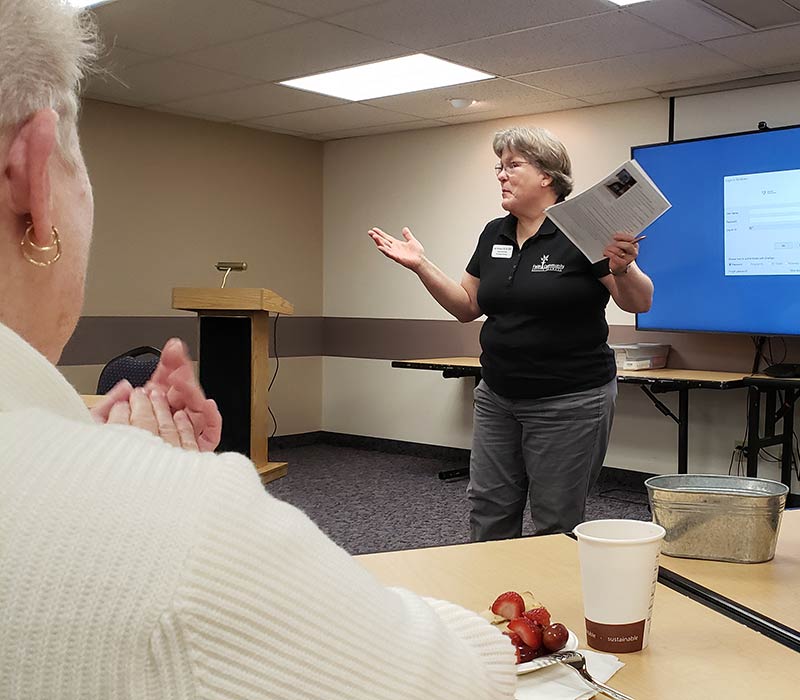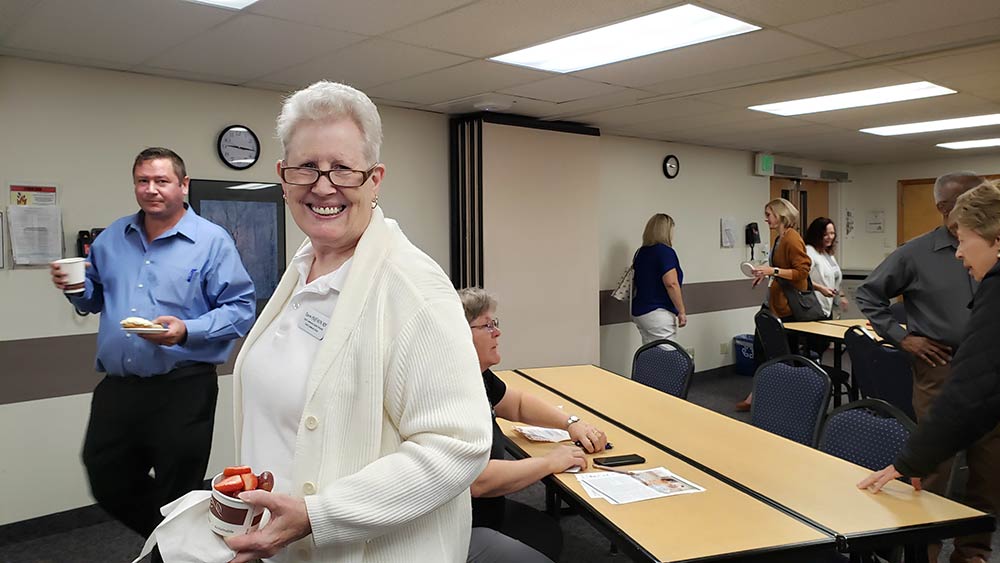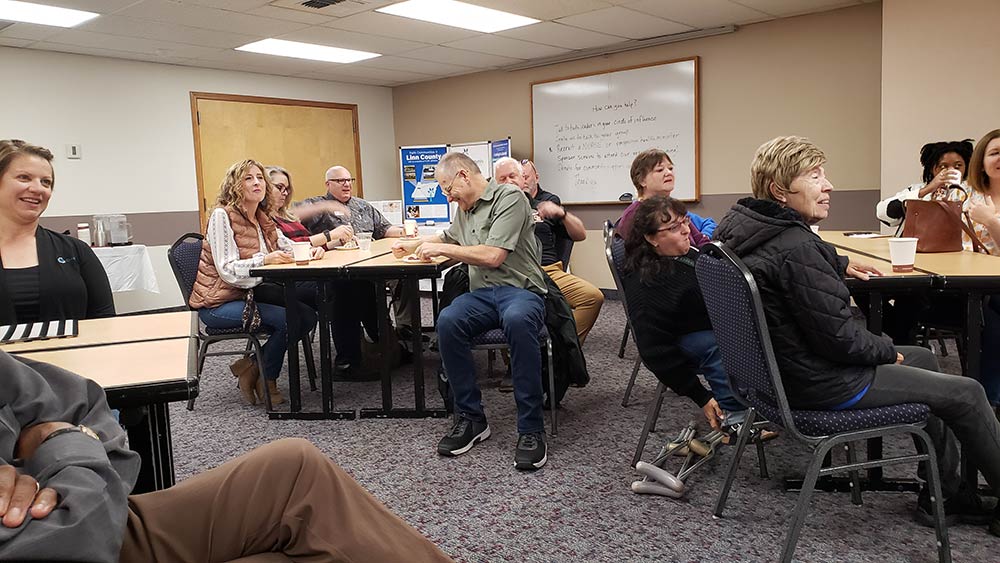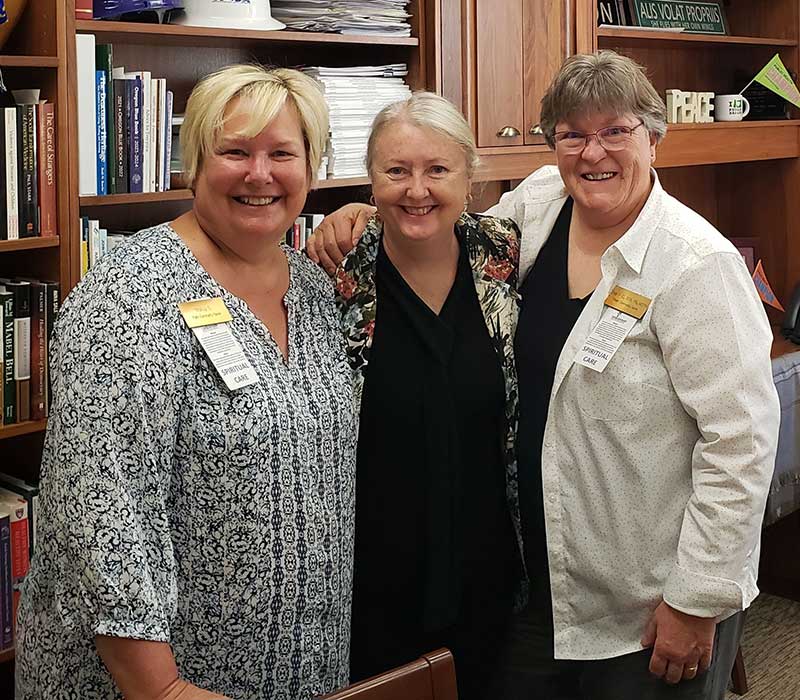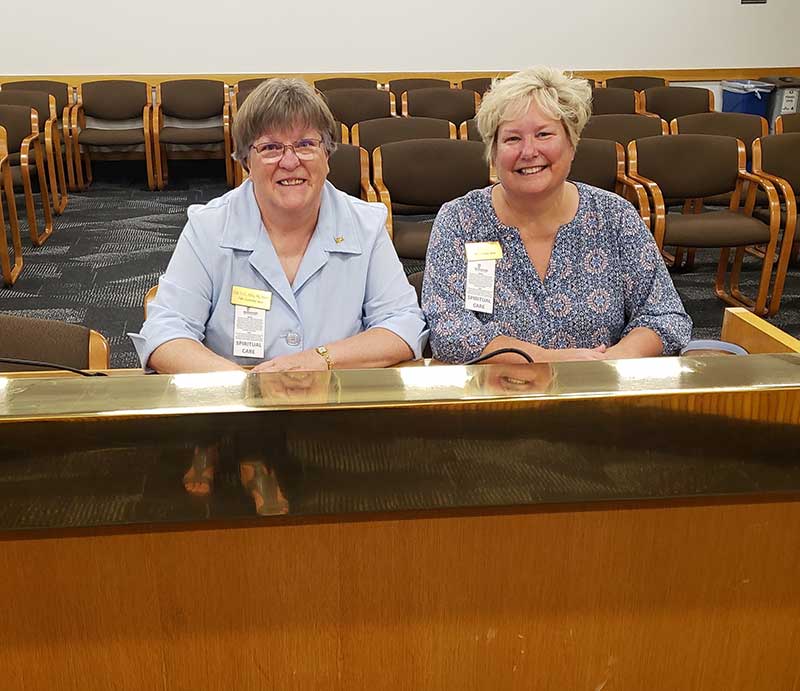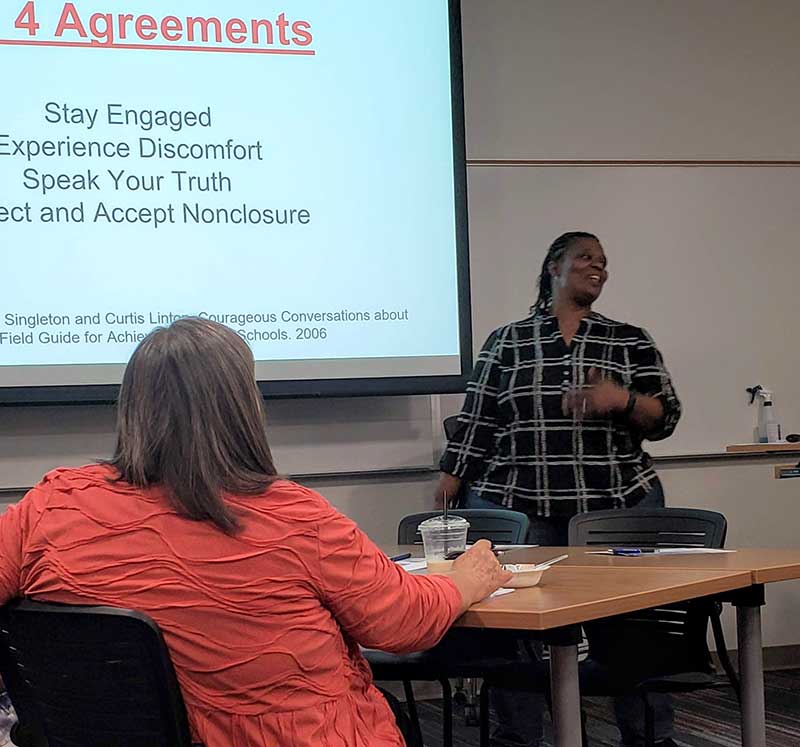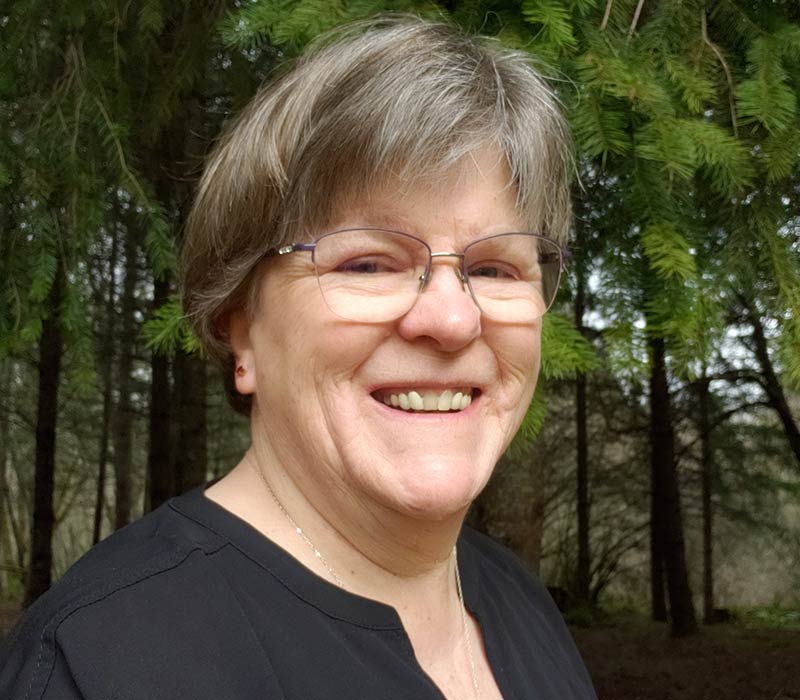It was late 2016 and I was about to retire from the best job I ever had with the best boss I ever had to step into something that was completely unknown to me. My husband was supportive. However, I couldn’t find a faith community nurse in my town to mentor me and I couldn’t find training for this nursing specialty. These were the first of many obstacles in this leap of faith, but it was a leap I was certain I was supposed to be taking. I worship in a small faith community in Lebanon, Oregon called Am HaSefer – People of the Book. I shared this call to service with our Rabbi and Gesher, Jonah Freeman. He felt the call, too, and was in full support, although neither of us knew what it was we were being called to, really, or how it would happen. I left my occupational health nursing career in the spring of 2017.
It took several months, but I found a Foundations of Faith Community Nursing Course about an hour away and registered for the October, 2017 class. Jonet Schutz, BSN, RN, Faith Community Nurse for Redeemer Lutheran Church and Coordinator for the Salem, OR area welcomed me into the class even though I was not in the Salem area. There were several of us in the class, all from different faith traditions.
The class was life-changing for me. Now that I had the course under my belt, I could hardly wait to get started! I thought the next big question was how to bring this to my faith community, but the call to service was bigger than that; I felt led to bring it to our entire rural community, not just my faith community. Rabbi Jonah agreed, although both of us were still unsure what “it” was, what “it” would look like, or how, exactly, to do “it.” We knew the need was great, and we agreed this could be a way to meet it.
The Lord provided the answer to this bigger “how” through unexpected open doors. I enrolled in an online FCN Coordinator Course through the Westberg Institute for Faith Community Nursing in the spring of 2018. Our congregation partnered with Faith Community Nursing and Health Ministries NorthWest, a Portland-based non-profit and Westberg Institute for Faith Community Nursing Educational Partner, and hosted our first Foundations of Faith Community Nursing Course in Lebanon, Oregon in over a decade. We held the class in donated space in Trinity Baptist Church in Lebanon. We were blessed to have Annette Stixrud, BA, RN, MS, as our Lead Educator and Jonet on hand as my coordinator mentor and graduated nine FCNs and health ministers, but only three were from Linn County.
The three local area graduates from that class joined with me to form an informal coalition we called the Faith Community Health Network and began meeting in January, 2019. We met monthly; all of us called to serve and committed to find our way. Faith Community Nursing and Health Ministries NorthWest sponsored me to take the Lead Educator Course for the Foundations of Faith Community Nursing Course in the spring of 2019 and I was excited to bring the course to our local area on a regular basis to help build our team. Unfortunately, Faith Community Nursing and Health Ministries NorthWest folded late in 2019. We could not deliver the course without an approved Educational Partner. Linn-Benton Community College – Extended Learning stepped in and partnered with the Faith Community Health Network to host the course in 2020 and 2021. Our Faith Community Health Network, officially a public charity since September, 2021, is now a Westberg Institute for Faith Community Nursing Educational Partner in its own right, and we are able to deliver the course on our own and did so in 2022. The Faith Community Health Network coordinated and delivered the Foundations of Faith Community Nursing Course right through the pandemic, with classes in the fall of 2020, 2021, and 2022! These courses have helped to build our team, and we continue to meet most months – nine times a year – for education, fellowship, and networking.
The ”how” has truly been Divine Intervention. We continue to grow and our small team of faith community nurses and health ministers are active in – and beyond – their faith communities.
We are making a difference.
We have another Foundations of Faith Community Nursing and Health Ministry Course scheduled for fall, 2023. We hope you will join us! Click here to learn more about the course and to register, and email Deb at faithcommunityhealthnetwork@gmail.com to be added to the email list.
